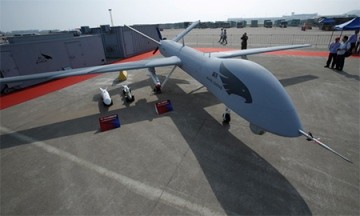China will be banning the export of Chinese-made supercomputers and high-performance drones for national security reasons.
Starting mid-August, the ban prevents manufacturers from exporting supercomputers, with more than 8 tera floating-point operations per second, outside China. China has been recognized as having some of the leading capabilities when it comes to supercomputing.
Gene Cao, a senior information technology analyst at market research firm Forrester Research Inc., said, "I think it definitely proves that China has the world's leading capabilities on supercomputing."
The Tianhe series, a China-based supercomputer, is currently the world's fastest supercomputer, which Japan and the United States are trying to surpass.
The U.S. government recently banned processors used in Chinese supercomputers, also citing national security concerns. This hurt Intel Corporation's business with several universities and laboratories.
The ban, which also affects drones, stops the exports of unmanned aerial vehicles that are capable of flying in gusty winds, hovering above 15,420 meters and capable of more than an hour of flight duration.
According to Shao Jianhuo, vice president of DJI Technology Co., "the ban is targeting drones not designed for commercial use and will protect key technologies of Chinese companies." The ban does not affect any of the products of DJI.
Shao added that "it was a surprise decision for the industry, but it really makes sense in terms of national security and the healthy growth of the industry."
The ban came two weeks after a drone, speculated to be made by a Chinese company, was caught in the crossfire between Pakistan and India.
On July 15, Pakistan claimed it had shot down an Indian military spy drone in the border between the two nations. India denied the accusation, and the shape of the drone has led some media outlets to believe it might be Chinese.
This is the first time that China is imposing export restrictions on such products.






















